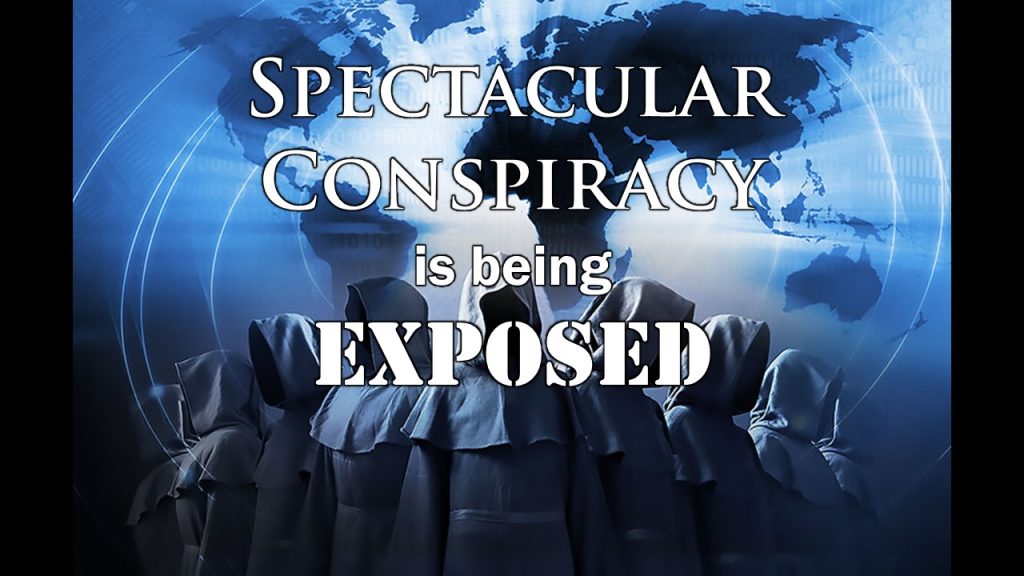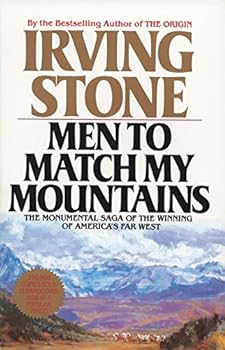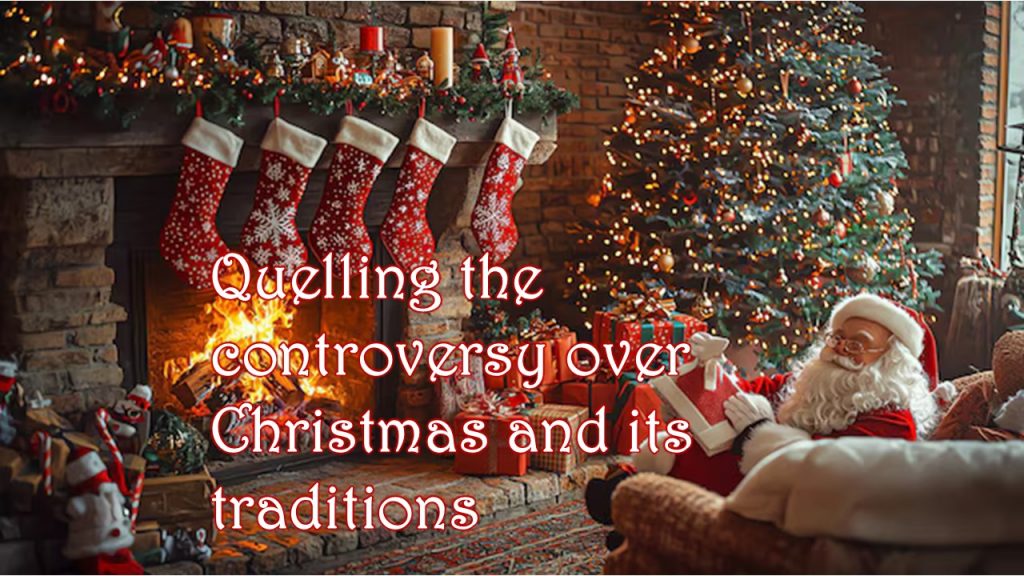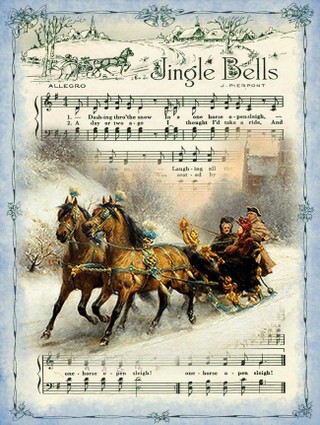
In today’s upside-down world it has become more obvious, even to people with relatively low levels of common sense, that we all need spiritual discernment to sort through society’s battle field, filled with land mines of deception.
As a young adult believer, I remember discovering some shocking truths in the Bible. The only reason they were shocking is because I somehow grew up assuming the older good people around me operated according to what’s true. After all, who but the depraved scoundrels of the world could possibly believe in lies?
This was the point where God’s Spirit made one Bible verse particularly impactful on how I began to think about things. It’s a familiar passage in Romans 12.
In verse 3 God’s Spirit reminds us to…
“be transformed by the renewing of our minds” as we refuse to be ‘conformed’ by the thinking of this age in which we live. Romans 12:2
This command from God requires two actions from us. The first is to “Be not conformed” to the common patterns of the thinking of this age. The second is to “BE transformed” by a process that requires my voluntary changes of how I think – that’s “the renewing of our minds.”
Think about that. And then, think about how many of the people in our age – our generation… our world… just seem to let all the crafty and persuasive advertising shape their minds to think in certain ways.
The fact of the matter is that we’re all being controlled to some extent by subtle and not-so-subtle influences. And fortunately, because of all the dreadful awakening that has been happening across the world at the tragic cost of millions of lives, it has become much more apparent that very evil people have been using corrupted governments and businesses to manipulate what we think about practically everything.
Mind controllers have been cleverly working for generations to get us all to believe the kinds of lies that can ultimately bring about our own destruction. Why does this happen? The Bible tells us…
“My people are destroyed for a lack of …knowledge…” Hosea 4:6
Let’s face it… the enemy of your soul wants you ignorant, confused, and blaming all your troubles on things beyond your control. But we can control what we listen to… what we think about… what we choose to give our attention, admiration, and affinity to.
Another shocking Bible reality that I discovered early on, is the fact that our personal struggles… as well as the struggles of humanity as a whole… are not just with natural and superficial man-made causes. There is actually a much more sinister dimension behind all those struggles. That’s why the Bible tells us…
“We wrestle not against flesh and blood, but against the rulers, against the powers, against the world forces of this darkness, against the spiritual forces of wickedness in the heavenly places.” Ephesians 6:12.
And that’s why God cares enough about us to give us commands like…
“Test all things. Hold fast what is good.” 1 Thes 5:21
Thoughtful mature adults have many reasons now to believe that a relatively small, not-so-hidden society of “elitists” have actually been systematically building for many generations, what they like to call “the New World Order.” The periodic gatherings of many of these ‘elites’ include their lavish social and formal interactions with what they call ‘The World Economic Forum,’ meeting in Davos, Switzerland, among others like the “Bohemian Grove” in California. Their elitist society operates under rules, established by their tiny minority of extremely wealthy people. They believe they alone possess superior qualifications for controlling the welfare of humanity for what they like to call “the greater good.”
They really envision a future with a small, centrally controlled population. They’ve blatantly predicted it must happen by the year 2030. They fully intend to have a world with a single government, a single economy, a single currency, a single language, a single education system, a single healthcare system, and a single religion. The docile citizens of their new world will be trained to worship the Earth and the ruling elite. As you already know, they’ve already achieved a great part of their goals through modern entertainment media. How many millions of people, especially in the industrialized West, mindlessly swoon in worship at the feet of ‘personality cults’ in both the world of movies and music, and the world of sports? The elites absolutely love this kind of ‘idolatry.’ As long as the masses of people’s minds are not paying attention to God’s Word and things that bring honor to Jesus, The Messiah, they really don’t care which of their idols gets the glory.
Today, it’s not just national TV news shows telling us the way things are… it’s every institutionalized information source in our society. It’s our public education system; it’s our “legacy” media like newspapers, T.V., and radio; it’s our mainstream movies, music, and video games; And it’s especially our “deep-state-” driven government. There’s more misinformation and outright lies being communicated than there is truth. If it weren’t for the recent emergence of independent media and citizen journalists, we would all be forced into a zombie-like state like communist China or North Korea.
Can you believe that the lies and disinformation being planted into American minds are enhanced as we consume the standard American diet? And what I mean by that also includes fluoridated water, psycho-active pharmaceutical drugs, statin drugs, vaccines and lots more. We allow ourselves to be exposed to immune system-suppressing substances – like glyphosate-laden food (That’s ‘RoundUP’ weed killer), genetically modified food (GMOs), and food containing antibiotics, preservatives, pesticides, and additives we can’t even pronounce. What happens when we throw in excitotoxins and endocrine-disrupting chemicals? You know… all the junk found in flavor enhancers, artificial fragrances, and chemicals from plastic packaging materials. Experts in toxicology have widely published that all those things create a long-term epidemic of bodily imbalance, weariness, apathy, confusion and disorientation.
In the beginning, these effects may be subtle. Over time – the more we’re exposed to them – they profoundly affect our ability to think clearly. Once the human brain is compromised by the combination of all these elements, people become highly susceptible to believing all manner of lies. Current-day mind control programs constantly bombard Americans with hundreds of lies to steer every aspect of our lives. It all creates a worldview that matches the beliefs of faceless anti-humans who are quite literally programming our minds. And I’m not even talking yet about the looming unknowns of A.I. (‘artificial intelligence’).
These mind-controlling influences rule every aspect of our society. Our minds and our bodies are under constant attack. That’s how we can become virtual slaves to that certain group of people we can simply identify as the “ruling elite.” As modern slaves, we’re compelled, convinced, and sometimes coerced into obeying the ruling elite whether we know it or not. We submit to their plans because it’s their plans that are constantly promoted by multi-national corporations, government agencies, and even religious institutions, which brazenly claim to have our “best interests” at heart.
What is The Grand Vision of Mind Controllers?
The ruling elite and their mind-controlling puppets are determined to program all of us to think only in authorized patterns. That’s so we don’t honestly question why things are happening. We’re conditioned to accept “official” news reports and just “go with the flow.” Just look around you. How many compliant zombies do you see, walking around, nodding their masked heads, and doing what they’re told, even when their actions are in direct conflict with biblical teaching?
The New World Order that they truly intend to create, would be a Godless society. In their world, the values of eugenics and genetic engineering would be used to create generations of humans who are perfectly suited for the work assigned to them. The natural nuclear family is eliminated. That’s too distracting from their grand social plan. Children in their universe belong to the state. They popularize one-liners, like “it takes a village” to raise a child. So, they turn education into indoctrination and make it “free.” Only state institutions can really do the bidding of the ruling elite in the society they envision.
The belief that human life is a gift from God that should be cherished and preserved, is incompatible with the ideologies of eugenics. The so-called science of Eugenics aims to put all human life under the authority of a superior class of people who are completely devoted to the authority of the state.
This is ‘Secularism.’ It completely leaves the Biblical God out of society – replacing Him with THE ALMIGHTY STATE. Once society believes their lies and accepts the worldview of the ruling elite, then it will be easy for them to manipulate all their submissive ‘sheeple’ to fulfill their goals. The combined effect of believing their lies and obeying their commands is to create a compliant population – glad to participate in centralized government control of every aspect of life.
So, what are the Lies We Must Battle?
There are definite steps that we can take to preserve our freedoms and protect ourselves and our family. But first we must acknowledge the battle, know the enemy’s tactics, and develop a clear devotion to The Commander of our souls – the LORD, Jesus – the Messiah.
Like the apostle Paul wrote in Ephesians 4… let all true disciples of Jesus emphatically concur…
“… that you must no longer walk (behave) as the (unregenerate) Gentiles do, in the futility of their minds. They are darkened in their understanding, alienated from the life of God because of the ignorance that is in them, due to their hardness of heart. They have become callous and have given themselves up to sensuality, greedy to practice every kind of impurity.” Ephesians 4:17-19
Do you think very many of the Christian young people in the places you might frequent are ever coached on these kinds of things?
Let’s list some of the most prominent lies being emphasized in today’s society. Hundreds could be mentioned, so we will touch on some of those that are receiving the most attention from mind controllers.
You might actually still believe some of these lies yourself. But don’t feel bad if you do. Simply consider this as an opportunity and challenge to “test all things” and engage in the process of renewing your mind by readjusting your thinking.
There are many lies on this list that many of us might have believed twenty years ago. That’s mostly because we never took the time to investigate whether our beliefs were supported by truth or simply by the opinions of other people. It’s a shock to our system, but sometimes the opinions of friends, family, school teachers, the news media, and even pastors and other religious leaders, are built into the anti-Christ belief system and worldview being pushed by the mind control agenda.
As you hear me list these commonly believed lies, you may want to dig a bit further to link to more information … accessible through the links in the notes for today’s show at ReclaimYourLegacy.com. When you’re at the website, just use the internal search icon to find today’s title – The Lies We Must Battle. You’ll connect right to the written notes with all those links.
Here’s Lie Number 1: “The Earth is a product of evolution; God did not create life; and He does not sustain life on the Earth.”
The elitists Goal?: Worship mother earth and science, control the evolutionary process through genetic engineering; essentially replace the Creator God in the mind of the masses with anything that can fill the emptiness that’s left in the human shells of walking dead men.
Consequence: Force people to live in high density city-oriented developments, where people do not own cars and cannot travel outside their communities unless approved by the government. All healthcare and cures need to be approved by the government. See The Limits of Science & the medical paradigm by Dr. David Stewart, author of The Chemistry of Essential Oils at this link: More Info.
Here’s Lie #2, “All food is safe to eat and equally nutritious. Eat all things in moderation.”
Their Goal? Everyone must eat highly processed GMO food that is full of toxic ingredients, like preservatives, flavor enhancers, pesticides, and herbicides such as glyphosate. Remember that “GMO” means genetically modified organism. Just because they say it’s safe… are you really confident that changing God’s elementary design of created things is always in your best interest?
The Consequence is the sad reality that everyone will eventually experience diminished health, chronic illness, and brain dysfunction. It’s already happening. Just look at the facts researched for the videos at the links here: More info#1 and More Info#2.
Here’s Lie #3, easily appreciated by those living in big cities: “The municipal water is safe to drink.”
It’s hard to believe the Goal: Whether intentional or not, the reality is that little has been done to prevent everyone from drinking public water that is known to contain some combination of fluoride, chlorine, lead, pesticide residues, and pharmaceutical drug residues.
The Consequence as this continues is inevitable: Everyone will be docile, be learning impaired, and be exposed to daily doses of carcinogens and dozens of pharmaceutical drugs that are not removed by water treatment plants.
See the facts on Dr. David Kennedy’s documentary film “Fluoridegate — An American Tragedy.” It exposes the sordid truth about water fluoridation that has nothing to do with promoting dental health at this link and multiple reports here: More Info.
Lie #4 has become virtual reality for the majority of Americans: “It’s normal to be sick, to feel depressed, and to be weak.”
Like every evil enemy’s Goal: Every adversary of theirs should be afflicted with some form of mental and/or physical chronic illness that will last a lifetime.
The Consequence for this one is alarmingly pervasive: Everyone will consume multiple prescription drugs every day for the rest of their lives, and be controlled by the corporatocracy of the conventional healthcare system that arguably rules the world right now.
More Info: Is Mandatory Poor Health the New Requirement for All Americans?
Lie #5 has been thankfully shifting because of the 2020 Covid Scamdemic, namely: “The only form of health care that is safe and effective is conventional allopathic medicine.”
The globalist eugenics Goal of course is clear: Everyone must participate in the conventional medical care system and use all the drugs and other treatments that state-certified doctors recommend, especially all poison-filled ‘vaccines’ and the drugs prescribed by psychiatrists.
Consequence: We are to continue supporting the highly dysfunctional and most expensive medical care system in the world, where symptoms are treated and illnesses rarely cured, while abandoning all forms of alternative approaches, which actually might cure disease.
Learn about America’s medical Apartheid at this link: More Info and more at Living Sick and Dying Young in Rich America
Lie #6 is finally beginning to fall into disfavor with sane-minded thinkers: “Vaccines are completely safe and absolutely necessary to protect the world from plagues of illness.”
How successful has been their Goal?: All children must receive massive sets of vaccinations from birth; and the pattern of multiple vaccinations should extend through the teenage years. Adult vaccinations should be given annually throughout adult life until we die.
The proven Consequence is tragic beyond words: Everyone will have suppressed immune systems; they’ll all be injected with high levels of aluminum, mercury, polysorbate 80, and viral contaminates all of which are associated with Alzheimer’s, autism, and numerous chronic diseases.
Thanks to weekly reports from The Highwire and many other organizations providing abundant reporting like Children’s Health Defense, the word is getting out and the tide of public opinion is being forced to see the realities behind this horrible distortion of true science. See the link at: More Info.
Lie #7 is being exposed for its foolishness but is still more tragically prevalent than most of us know: “The rights and preferences of children, as determined by the state, are more important than the rights of their parents.”
The Goal: State agencies should oversee the raising of every child; force parents to obey the state; and freely remove children from their homes whenever they see fit.
The Consequence wouldn’t be the first time in history: Parents will not be able to teach their children about God; nor can they discipline them when they sin, or help them develop gender appropriate behaviors. As American government has grown ever larger in response to society’s expectations that the state should be the protector of all children, Americans have discovered these good intentions have created a system that is becoming more and more intrusive, demanding and corrupt. Parents’ protests, state hearings and local media attention are gradually bringing the public’s attention to a Child Protective Services (CPS) system that has the power to forcibly remove children from their parent’s care – and do it without any of the civil rights and protections ALL American citizens are guaranteed.
You’ve got to see the stark reality at this link: More Info.
Lie #8 is now one of the biggest yarns ever told: “Everything that we are told by our government and the media is true.”
Goal: Everyone should believe what they are officially told, without questioning the truthfulness of the message.
Consequence: People will lose the ability to examine the facts and draw independent conclusions.
This one is crumbling down as even the MSM reports its own failure to overcome their widespread loss of credibility among the general public. That distrust is making it more believable that Truth will eventually overcome all the lies in this list. But it certainly requires more truthtellers to actively participate in the warfare to win the hearts and minds of young people.
Lie #9 is one you’ve heard for years: “There are no moral absolutes, no sins, and no hell.”
The elitist’s Goal is inevitable: Government should set standards of behavior according to what the ruling elite think is best for the greater good of society. Truth is relative, since everybody thinks they can have ‘their own truth.’
Consequence: Absolute laws based on Biblical standards of God will be abolished.
Is the Way You Think About God Healthy? See His truth at this link: More Info.
Lie #10: “The greater good is always more important than the wellbeing of the individual.”
Goal: Take away independent decision making and depend on central decisions made by the state.
Consequence: The state may take lives and property, whenever it determines that such actions are for the greater good.
Defending the Religious Exemption to Vaccination by Barbara Loe Fisher of the National Vaccine Information Center gives a thorough argument against this lie at this link: More Info.
Lie #11: “The state is our refuge and will be our savior whenever there is a crisis.”
Goal: People should turn to the state instead of turning to God during times of difficulty.
Consequence: The natural relationship between God and His adopted sons and daughters will be replaced by the authority of government.
See Don’t Put Your Trust in Human Government! At this link: More Info.
Lie #12: “It is a sign of insanity to believe in the gospel of Jesus Christ and to have faith in the God of the Bible.
Goal: Turn the belief in Jesus, and the desire to live according to the inspired words of God as written in the Bible into a mental illness.
Consequence: Permit involuntary confinement of those who follow Jesus, and permit forced drugging with mind altering psychoactive pharmaceutical drugs.
Lie #13: “There is no such thing as mind control programs.”
Goal: Make people think that anyone who believes in the existence of mind control programs is mentally deficient, paranoid, or a delusional conspiracy theorist.
Consequence: Those who speak against the mind control agenda will lose jobs, lose their children, and may end up institutionalized or in prison. Execution may be the ultimate response to those who will not surrender their minds and their bodies.
The Mind Control Agenda
Now remember, all of these lies on the agenda of the mind-controlling elites in our world, help illustrate the reason and urgency for the Ekklesia of our Creator – true followers of Jesus Christ – to take seriously our mission assignment.
Don’t be overcome by evil, but overcome evil with good. (Romans 12:21)
Don’t fear what man can do to us, when fearing only God is what empowers Christ’s overcomer, His obedient, holy nation of God’s own people. Psalm 56:11 and Heb 13:6
As Peter wrote, “that you may proclaim the excellencies of him who called you out of darkness into his marvelous light” (1 Peter 2:9). That means expose the darkness of enemy lies and shine the truth of God’s light on the people of the generation that is overwhelmed by that darkness.
Bathing your soul in God’s truth is more vital now that ever.
Trust in the Lord and do good. Psalm 37:3
He is the Lord of hosts. It’s Jesus who is “the living one” who died but now is “alive forevermore,” … And He has “the keys of Death and Hades” (Revelation 1:18). His angel armies are about to be released as His warrior priests unite in spiritual battle with one another to bind on earth what has already been bound in heaven, and loose what has been loosed by Christ’s resurrection authority. Matt 16:19 and Matt 18:18
The followers of Jesus threaten the ruling elite and their plan for a New World Order, because we have the Holy Spirit. We have God given discernment and can see through their schemes.
We also have the written Word of God, the Bible, which clearly condemns everything they are trying to do. In short, we are the greatest danger to the advancement of the New World Order and those who are trying to program everyone to be godless slaves of the ruling elite.
What can we do to Resist the Mind Control Activities of Our Age?
The first step is to realize that we must be active.
“Submit yourselves, then, to God. Resist the devil, and he will flee from you.” (James 4:7)
Passivity only leads where the comforts and pleasures of our time are temporary until the ruling elites’ power seems final. But God’s destiny is their defeat by His kingdom. That’s why God’s saints must stand firm in the power of His Word and prayer. Persecution may come for a time, but the LORD of angelic hosts will deliver His people as His enemies meet with His overwhelming indignation.
Bonus Segment
As in the time of Moses and the time of Queen Esther, when God’s people feared their seemingly imminent annihilation, the globalist plans of the ruling elite naturally cause fear, but we must not yield our souls to their mind-control. In the will and power of God, we must not fear what they might threaten to do to our bodies.
“Do not be afraid of those who kill the body but cannot kill the soul. Rather, be afraid of the One who can destroy both soul and body in hell.” (Matthew 10:28)
They may threaten our lives, but if we are truly disciples of Jesus, abiding in His word, then we must always remember that God is greater than those who persecute us.
“You, dear children, are from God and have overcome them, because the one who is in you is greater than the one who is in the world.” (1 John 4:4)
So, whatever you do on a daily basis, make sure you’ve truly made it your highest priority to personally abide closely to the heart of your Master. Let Jesus guide your thoughts and plans, as you obey Him in all His Word commands, and let His peace rule over any anxiety your heart might be tempted to fear.
Make your own declaration with King David’s psalm (Ps 27:1-14).
“1 The LORD is my light and my salvation; Whom shall I fear? The LORD is the strength of my life; Of whom shall I be afraid?
2 When the wicked came against me To eat up my flesh, My enemies and foes, They stumbled and fell.
3 Though an army may encamp against me, My heart shall not fear; Though war may rise against me, In this I will be confident.
4 One thing I have desired of the LORD, That will I seek: That I may dwell in the house of the LORD All the days of my life, To behold the beauty of the LORD, And to inquire in His temple.
5 For in the time of trouble He shall hide me in His pavilion; In the secret place of His tabernacle He shall hide me; He shall set me high upon a rock.
6 And now my head shall be lifted up above my enemies all around me; Therefore I will offer sacrifices of joy in His tabernacle; I will sing, yes, I will sing praises to the LORD.
7 Hear, O LORD, when I cry with my voice! Have mercy also upon me, and answer me.
8 When You said, “Seek My face,” My heart said to You, “Your face, LORD, I will seek.”
9 Do not hide Your face from me; Do not turn Your servant away in anger; You have been my help; Do not leave me nor forsake me, O God of my salvation.
10 When my father and my mother forsake me, Then the LORD will take care of me.
11 Teach me Your way, O LORD, And lead me in a smooth path, because of my enemies.
12 Do not deliver me to the will of my adversaries; For false witnesses have risen against me, And such as breathe out violence.
13 I would have lost heart, unless I had believed That I would see the goodness of the LORD In the land of the living.
14 Wait on the LORD; Be of good courage, And He shall strengthen your heart; Wait, I say, on the LORD!










